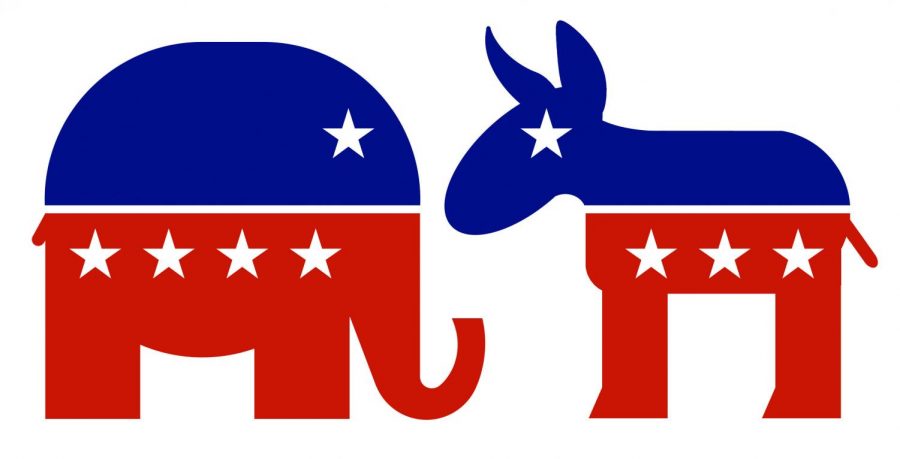It’s More Than Parties, It’s Politics
“America is more polarized today than ever before.” This is the narrative that’s been circulating in dinner table and cocktail party conversations for the past couple of years, but is that truly the case?
Look at any political articles from the last few years and you’ll see that Democrats and Republicans in Congress are voting more predictably with their party now as compared to the last 30 years.
Turn on cable news and you’ll find a sharp ideological divide between the personalities on Fox News and MSNBC (especially now that noted moderate Shepard Smith has left Fox’s roster). Log on to Twitter and you’ll be swiftly caught in a deluge of vitriolic arguments on pieces of news that dropped five minutes ago.
A higher percentage of Americans politically identify as Independents than either Democrat or Republican. This isn’t a new development.
According to Gallup, this has been the case for most of political history since 1988.
We so often buy into the story of decontextualized data and anecdotal observation. We hear the shouting on television and see the capitalized responses on the Internet and think that this is what America has come to.
But what’s really happening is that the vocal sects of each party have found a wider platform, and sensationalism has become the name of the game when it comes to cable news. These things don’t represent the full political scope of Americans, the vast majority of whom don’t pick fights online or tune in to ideologues. The fringes are more outspoken, but the center is apparently holding.
I will concede for a moment that Independent doesn’t necessarily equate with moderate, though that is certainly the implication.
Notable democratic socialist Bernie Sanders was an Independent until he decided to run for president and switched his affiliation to Democrat.
This move was a necessity for him to be taken seriously as a candidate because there are only two major political parties in the United States.
In other developed nations around the world, multi-party systems are quite popular. Their legislative institutions are open to a more diverse selection of beliefs, instead of shoehorning radicals and moderates under the same name. How can you see value in a party that has to cater to such a wide array of beliefs?
Furthermore, according to Quartz, the average lifespan of a political party is 43 years.
This allows for governments and their people to account for changing times. In the United States, Democrats or Republicans have controlled Congress for 163 years.
Of course, the politics of each party has shifted, but those incremental alterations cannot be seen nearly as effective as organizing completely new groups.
So why have we been sticking with the same two parties? And why are so many people outraged that each is leaning a bit more towards their side of the spectrum?
This all speaks to a valid concern that a lot of American politics is merely a fight between two sides of the same coin.
The central paradox here is that while Democrats and Republicans have apparently become even stauncher in their political stances over the years, in many ways they still share vital and unsavory traits that allow them both to be categorized under the umbrella of “establishment politics.”
They are both neoliberals at heart. They both accept vast amounts of corporate money. They are both interested in the continuation of American imperialism.
People invested in or ignorant of those bona-fide American features will often tell you that your ethical dissent is “just politics,” a rhetorical strategy of dismissing civic power. Some would have you believe that you wear politics like a piece of clothing, that it isn’t fundamental to who you are.
And part of that is true; certainly the institutions of government are not natural phenomena.
But your values are everything, and in our macrosystem of human regulation they are represented by politics. It’s not just politics, it’s politics. For most of those who have been granted access into the American elite, politics is a game. I mean, we call it the political arena.
After all, the Second Democratic primary debate’s intro was criticized for feeling like the opening of “American Ninja Warrior.” On that same debate stage, we keep hearing each candidate extol the progressiveness of his or her own Medicare plans.
But when it comes to the presidential debate, most of them would sing different songs, toning down the reformist language. It isn’t about doing the right thing; it’s about making the right move.
Politics is about establishing the world we want to live in. And if you’ve already made it to the world you want to live in, then why would you care about politics.
“Democrat” and “Republican” are becoming increasingly insipid terms, standing for both too much and too little.
We the people must feel properly represented for democracy to work.
Michael Byrne, FCLC ’20, is an English major from Chatham, N.J.










































































































































































































